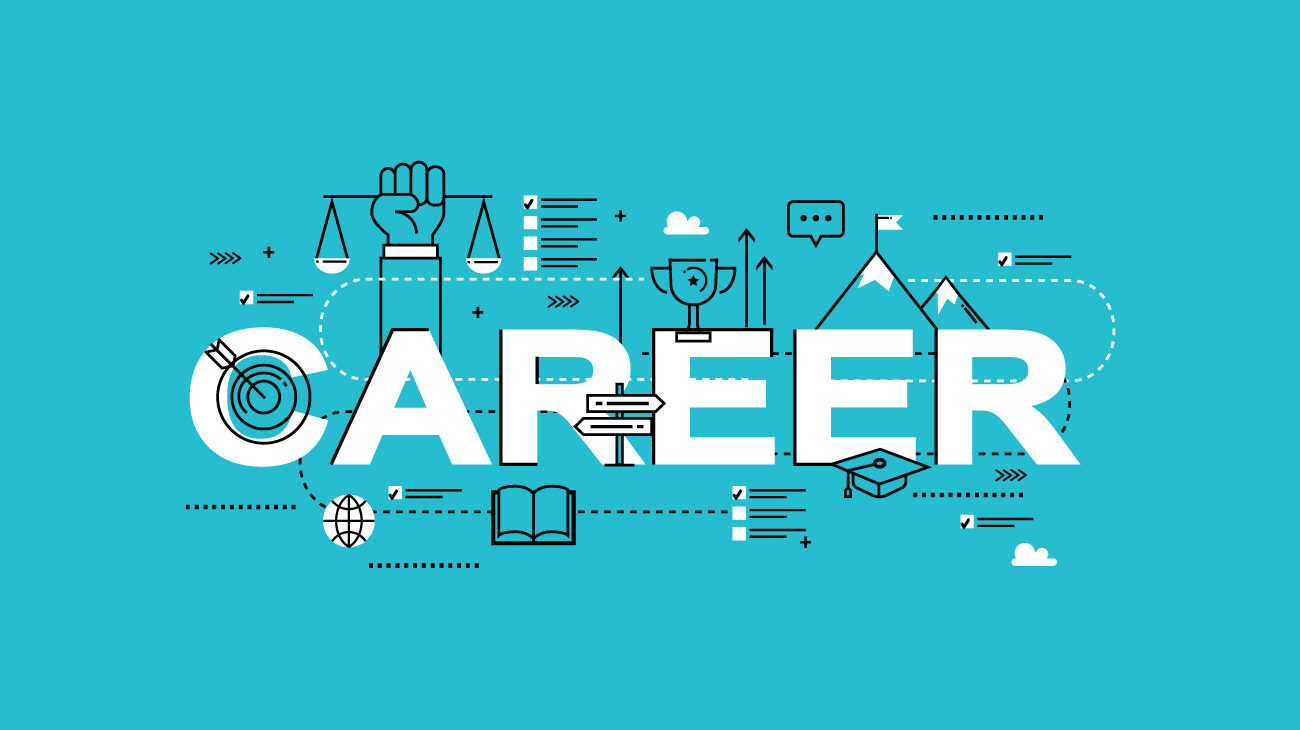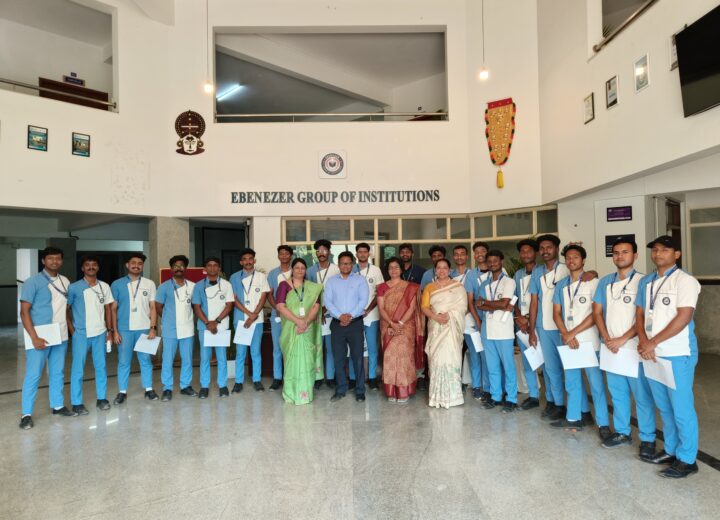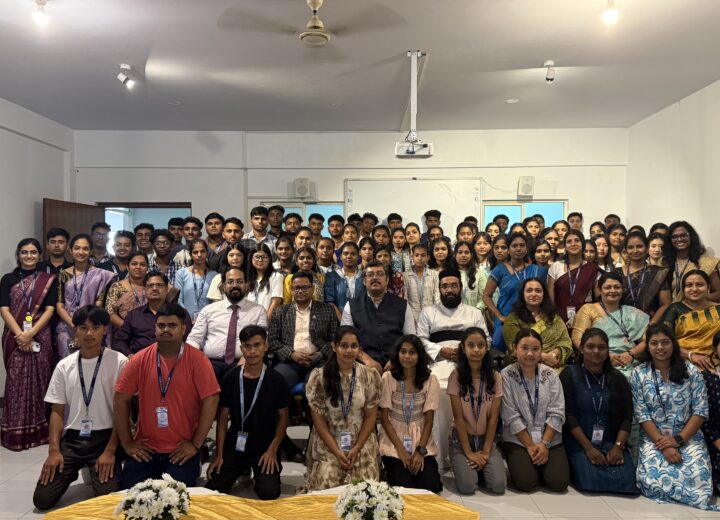
How Can Career-Oriented Education Prepare You for Career Success?
Imagine walking across the stage at graduation. You wear your cap and gown and hold your certificate. Your friends and family cheer for you. Your phone has messages from people saying “Congrats.” You feel like the world is there for you to explore. But when the music and cheers stop, things feel different. You step into a job market that asks more of us now than it did before. It changes all the time, and more people want the same jobs. This is the place where your true path starts. Leaving a steady school setting for a busy job life requires more than what you learn in school. You need to be ready for changes. You have to feel sure about your skills. There is a need for the kind of abilities that help you not just with your first job, but also as you move forward in your career year after year.
For many graduates, this move from college to work can feel scary. But you do not have to worry. With career-oriented education and the right way of thinking, you can step into the workplace with ease. The foundation of professional skills for students helps a lot in making this change smoother.
Why Career-Oriented Education Matters More Than Ever
In the past, you could find a steady job if you had a degree. Now, the people who give jobs want more. They do not just look for a diploma. They want to know what you can do. Can you use what you know in real life? Can you think in a smart way when you have problems or feel stuck? Are you good at working with the latest tools in your field?
Career-oriented education helps students feel ready to say “yes” to these questions. The focus is on more than just learning in theory. You get to practice what you have learned in real-life settings. This can be a nursing student working in a practice hospital room. It can also be a business student handling real business cases. These chances help you learn skills that employers want.
From Theory to Practice: The Power of Hands-On Learning
Think about a pharmacy student who learns about drug mix in school. They know the formulas and the science. But they need to work in a real lab or help a pharmacist in a clinic first. They have not learned the fast way to work, the skill to be correct, and the kind of thinking people need for this job yet. In the same way, an IT student can write code in class. But fixing a real client’s tech problem with not much time is a new test. You have to use a different kind of problem-solving and keep calm while you do it. Hands-on training helps you turn what you learn at school into real job skills. When you mix theory and practice the right way, you get a strong base for career-oriented education. It gets people ready to work and feel sure about their job from the first day.
Essential Professional Skills Every Student Should Master
The workplace keeps changing. But some skills will always be important. These skills stay with you for your whole life.
1. Critical Thinking & Problem-Solving
Employers want people who can see a problem, understand what is going on, and find a good answer. It can be anything, like solving a patient care issue, fixing a small tech problem, or helping a client with something they need. Being good at solving problems is what makes a good worker stand out and be great.
2. Effective Communication
The skill to share ideas in a clear way, both through writing and talking, is very important. In healthcare, this can help when a doctor needs to tell a worried patient what is wrong. In business, this can help when you give a talk to win over a big client.
3. Technical Competence
The use of technology is now part of almost every job. Nurses use advanced medical machines. A business manager needs analytics tools for their work. IT workers must learn new computer languages as they change. You have to know your way around technology these days. It’s something people look for.
4. Adaptability
The way we work today changes fast. Jobs can shift. New tools can come out. Industries change a lot. People who can change with these things and keep focused will always be ahead of the rest.
5. Ethics & Professionalism
No matter the skill that you have, people look at how honest and professional you are. Employers want workers who always tell the truth, take responsibility, and make good choices at work. This is true in every job field.
The Advantage of Diverse Academic Programs
Institutions with many programs, like Nursing, Paramedical Sciences, Business Management, IT, and others, let students pick what suits them best. You can go for the path that matches what you are good at and what you feel passionate about. These choices make it easier for people to find one that fits them.
How Students Can Prepare for Career Success While Still in College
Even before you finish school, you can do things to help you move into work life in an easier way:
1. Seek Out Practical Learning Opportunities – Go for programs that have labs, simulations, clinical practice, or projects in the industry.
2. Join Workshops & Industry Seminars – Keep up with new trends and get to talk with experts who work in your field.
3. Make a Professional Portfolio – Write down your projects, certificates, and work experience from internships.
4. Get to Know People Early – Go to career events, meet people who graduated, and join groups linked to your field.
5. Get Involved in Interdisciplinary Projects – Work with classmates from other courses so you can see things in a new way.
6. Keep Learning All the Time – Try to learn about new tools, ways to work, or facts even when you are not in class.
Lifelong Learning: Your Secret Career Superpower
The workplace today is always changing, and tomorrow it will be different again. There will be new tools, new ways to do things, and fresh challenges that come up all the time. People who keep learning as they work, like by doing certifications, taking online classes, or talking to mentors, stay ready and keep up with others in their field.
Think of your education as the start, not the end. Every skill you get, each project you do, and any challenge you beat will help you in your job. All of these things add value over time as you go through your work life.
The move from the classroom to a job is both exciting and hard. With the right preparation and hands-on practice, you can feel good about your skills. When you learn the technical side and also work on your people skills, you can walk into your new career feeling ready. This helps you do well in your field.
Career-oriented education means you get more than just a degree. You build a strong base for many good years ahead. The skills you learn now can open new doors for you. They help you keep up when things change and can lead you to be a leader later on. Your future begins with the choices you make now. The next step is here for you to get skills that you will keep for many years. You can look at programs that mix the best of learning with hands-on practice. Get ready for work that will change and go with you through your life.
Visit https://ebenezercollege.edu.in/ to see how you can use your time to get a strong start in your career.




